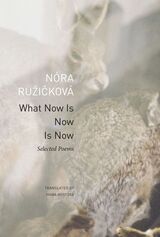

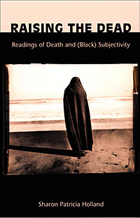
Holland argues that the presence of blacks, Native Americans, women, queers, and other “minorities” in society is, like death, “almost unspeakable.” She gives voice to—or raises—the dead through her examination of works such as the movie Menace II Society, Toni Morrison’s novel Beloved, Leslie Marmon Silko’s Almanac of the Dead, Randall Kenan’s A Visitation of Spirits, and the work of the all-white, male, feminist hip-hop band Consolidated. In challenging established methods of literary investigation by putting often-disparate voices in dialogue with each other, Holland forges connections among African-American literature and culture, queer and feminist theory.
Raising the Dead will be of interest to students and scholars of American culture, African-American literature, literary theory, gender studies, queer theory, and cultural studies.

To Mary Augusta Ward, Sarah Grand, and Charlotte Perkins Gilman, housekeeping represented public responsibilities: making the food supply safe, reforming politics, and improving the human race itself. Raising the Dust places their writing in the context of the late-Victorian era, in particular the eugenics movement, the proliferation of household conveniences, the home economics movement, and decreased reliance on servants. These changes affected relationships between the domestic sphere and the public sphere, and hence shaped the portrayal of domesticity in the era's fiction and nonfiction.
Moreover, Ward, Grand, and Gilman articulated a domestic aesthetic that swept away boundaries. Sutton-Ramspeck uncovers a new paradigm here: literature as engaging the public realm through the devices and perspectives of the domestic. Her innovative and ambitious book also connects fixations on cleaning with the discovery of germs (the first bacterium discovered was anthrax, and knowledge of its properties increased fears of dust); analyzes advertising cards for soap; and links the mental illness in Gilman's “The Yellow Wall-Paper” to fears during the period of arsenic poisoning from wallpaper.

A rich history of the development of American minimum wage policy with lessons for today.
Despite broad popular support for robust minimum wage policy, the federal minimum wage is now worth less—in real, inflation-adjusted terms—than at any time since 1949. While some state and local governments have stepped in to fill this void, others have declined to set any minimum wage standard at all. Traversing more than 100 years of history, Raising the Floor examines how interest groups have navigated the highly decentralized American political system to shape the development of federal, state, and local minimum wage laws.
In her analysis, Shanna Rose highlights the importance of American federalism. She argues that because federalism creates multiple arenas for policy change, interest groups have sought out the sites most conducive to their goals, shifting their lobbying efforts as new obstacles and opportunities emerge. Federalism has facilitated minimum wage policymaking by fostering policy experimentation, learning, and diffusion across states and by allowing state and local governments to overcome gridlock and status-quo biases at the national level. Yet, federalism has also been an instrument for containment, enabling those opposed to minimum wage increases to litigate and preempt local-level laws.
With rich historical chapters that illuminate different phases in the development of today’s patchwork of wage standards, Raising the Floor is a deep examination of the past, present, and future of American minimum wage law.
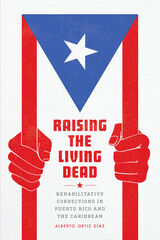
Raising the Living Dead is a history of Puerto Rico’s carceral rehabilitation system that brings to life the interactions of incarcerated people, their wider social networks, and health care professionals. Alberto Ortiz Díaz describes the ways that multiple communities of care came together both inside and outside of prisons to imagine and enact solution-oriented cultures of rehabilitation from the 1930s to the 1960s. Scientific and humanistic approaches to well-being were deliberately fused to raise the “living dead,” an expression that reemerged in the modern Caribbean to refer to prisoners. These reform groups sought to raise incarcerated people physically, mentally, socially, spiritually, and civically.
The book is based on deep, original archival research into the Oso Blanco (White Bear) penitentiary in Puerto Rico, yet it situates its study within Puerto Rico’s broader carceral archipelago and other Caribbean prisons. The agents of this history include not only physical health professionals, but also psychologists and psychiatrists, social workers, spiritual and religious practitioners, and, of course, the prisoners and their families. By following all these groups and emphasizing the interpersonal exercise of power, Ortiz Díaz tells a story that goes beyond debates about structural and social control.
The book addresses key issues in the history of prisons and the histories of medicine and belief, including how prisoners’ different racial, class, and cultural identities shaped their incarceration and how professionals living in a colonial society dealt with the challenge of rehabilitating prisoners for citizenship.
Raising the Living Dead is not just about convicts, their immediate interlocutors, and their contexts, however, but about how together these open a window into the history of social uplift projects within the (neo)colonial societies of the Caribbean. There is no book like this in Caribbean historiography; few examine these themes in the larger literature on the history of prisons.
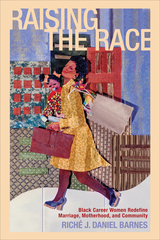
Popular discussions of professional women often dwell on the conflicts faced by the woman who attempts to “have it all,” raising children while climbing up the corporate ladder. Yet for all the articles and books written on this subject, there has been little work that focuses on the experience of African American professional women or asks how their perspectives on work-family balance might be unique.
Raising the Race is the first scholarly book to examine how black, married career women juggle their relationships with their extended and nuclear families, the expectations of the black community, and their desires to raise healthy, independent children. Drawing from extensive interviews with twenty-three Atlanta-based professional women who left or modified careers as attorneys, physicians, executives, and administrators, anthropologist Riché J. Daniel Barnes found that their decisions were deeply rooted in an awareness of black women’s historical struggles. Departing from the possessive individualistic discourse of “having it all,” the women profiled here think beyond their own situation—considering ways their decisions might help the entire black community.
Giving a voice to women whose perspectives have been underrepresented in debates about work-family balance, Barnes’s profiles enable us to perceive these women as fully fledged individuals, each with her own concerns and priorities. Yet Barnes is also able to locate many common themes from these black women’s experiences, and uses them to propose policy initiatives that would improve the work and family lives of all Americans.
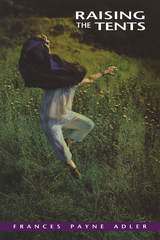
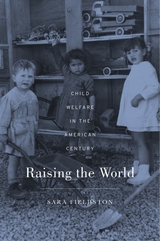
After World War II, American organizations launched efforts to improve the lives of foreign children, from war orphans in Europe and Japan to impoverished youth in the developing world. Providing material aid, education, and emotional support, these programs had a deep humanitarian underpinning. But they were also political projects. Sara Fieldston’s comprehensive account Raising the World shows that the influence of child welfare agencies around the globe contributed to the United States’ expanding hegemony. These organizations filtered American power through the prism of familial love and shaped perceptions of the United States as the benevolent parent in a family of nations.
The American Friends Service Committee, Foster Parents’ Plan, and Christian Children’s Fund, among others, sent experts abroad to build nursery schools and orphanages and to instruct parents in modern theories of child rearing and personality development. Back home, thousands of others “sponsored” overseas children by sending money and exchanging often-intimate letters. Although driven by sincere impulses and sometimes fostering durable friendships, such efforts doubled as a form of social engineering. Americans believed that child rearing could prevent the rise of future dictators, curb the appeal of communism, and facilitate economic development around the world.
By the 1970s, child welfare agencies had to adjust to a new world in which American power was increasingly suspect. But even as volunteers reconsidered the project of reshaping foreign societies, a perceived universality of children’s needs continued to justify intervention by Americans into young lives across the globe.
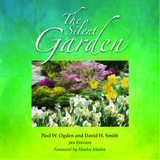
Authors Paul W. Ogden and David H. Smith, who are both deaf, present examples and research that guide parents through often unfamiliar territory. From coping mechanisms for parents to advice on creating healthy home environments, the authors cover a range of topics that impact day-to-day actions and decision-making. The topic of communication is discussed extensively as communication access and language development are crucial not only for intellectual growth, but also for positive family and social relationships. The authors look at American Sign Language, listening and spoken language, written English, and various other modes of communication available to deaf children. Different educational options are presented, and technology—including the debate about cochlear implants—is reviewed. Deaf children with special needs are considered here as well. Each topic is accompanied by real-life stories that offer further insight.
Always encouraging, The Silent Garden empowers parents to be the best advocates for their deaf children. Throughout, the authors emphasize that each choice is highly personal, and they stress that all deaf children have the potential to lead rich, productive, and exciting lives.
Also available in Spanish - El Jardín Silencioso: Una guía para los padres para criar a un niño sordo is a condensed Spanish edition that features the first five chapters of The Silent Garden. Topics covered include coping mechanisms for parents, creating healthy family environments, fostering independence, and understanding the perspectives of siblings.
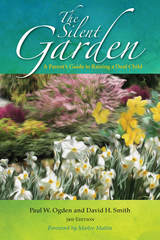
Authors Paul W. Ogden and David H. Smith, who are both deaf, present examples and research that guide parents through often unfamiliar territory. From coping mechanisms for parents to advice on creating healthy home environments, the authors cover a range of topics that impact day-to-day actions and decision-making. The topic of communication is discussed extensively as communication access and language development are crucial not only for intellectual growth, but also for positive family and social relationships. The authors look at American Sign Language, listening and spoken language, written English, and various other modes of communication available to deaf children. Different educational options are presented, and technology—including the debate about cochlear implants—is reviewed. Deaf children with special needs are considered here as well. Each topic is accompanied by real-life stories that offer further insight.
Always encouraging, The Silent Garden empowers parents to be the best advocates for their deaf children. Throughout, the authors emphasize that each choice is highly personal, and they stress that all deaf children have the potential to lead rich, productive, and exciting lives.
Also available in Spanish - El Jardín Silencioso: Una guía para los padres para criar a un niño sordo is a condensed Spanish edition that features the first five chapters of The Silent Garden. Topics covered include coping mechanisms for parents, creating healthy family environments, fostering independence, and understanding the perspectives of siblings.
READERS
Browse our collection.
PUBLISHERS
See BiblioVault's publisher services.
STUDENT SERVICES
Files for college accessibility offices.
UChicago Accessibility Resources
home | accessibility | search | about | contact us
BiblioVault ® 2001 - 2025
The University of Chicago Press





